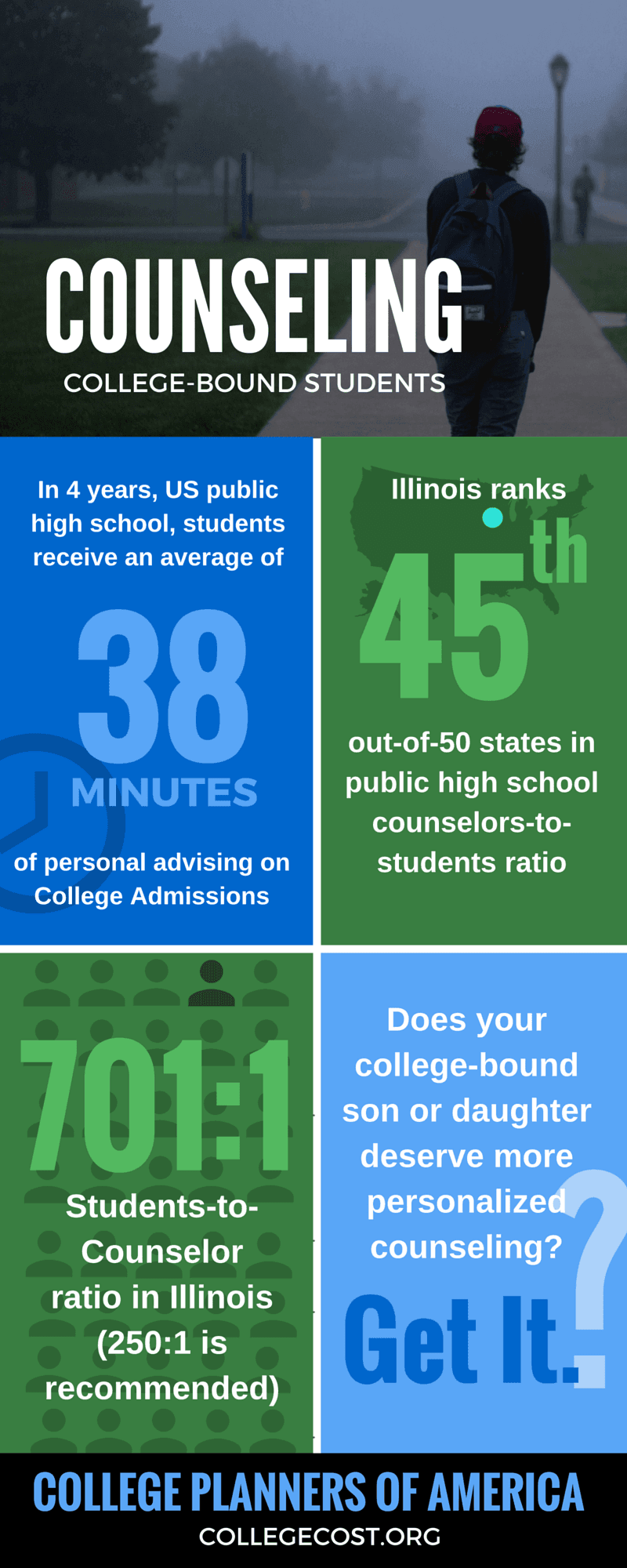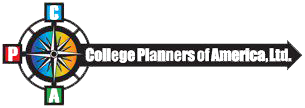There’s good news and bad news when it comes to the counseling your high school student is getting about college.
Let’s start with the good news, shall we?
Research shows that one of the key determinants (after family) of whether or not a student will even head to college after senior year is college admissions counseling. Time spent working with an expert can shortcut the path to college, and ensure a student picks the right school and major from the start.
Because in the information age, whoever has the best information and acts on it, wins. And that’s why having a coach or mentor is so important. Because coaches are experts in their field – counselors that provide the best information.
—Ruben Gonzalez, four-time Olympian
Now here’s the bad news.
“You get what you pay for” is an adage that couldn’t ring truer in the world of public high school counseling, especially in Illinois, a state that has cut funding to schools and withheld payments repeatedly. Additionally, high school counselors have a staggering array of responsibilities. They work on behavioral or attendance issues, help students plan their high school schedule, offer study advice, suggest extracurricular activities that look good on resumes, advocate for student emotional and mental health and write letters of recommendation. And they can recommend colleges to a student, help with applications and scholarship opportunities.
But just how much time does the average counselor give her students? The U.S. Dept. of Education found that counselors provide an average of 38 minutes of personal advising on college admissions. Yikes! That number is staggeringly low. There’s no way a student can dive deep into all the elements related to just applying to colleges (and there’s so much more that needs to be done college-wise besides!
In Illinois, there are not nearly as many counselors in our high schools as there are in schools across the country. In fact, Illinois ranks 45th out of 50. That means Illinois students have LESS access to a counselor than almost anywhere else in the nation. Illinois counselors are saddled with a much larger than optimal student-load. How large? The American School Counselor Association considers 250 students (or fewer) to 1 counselor to be an ideal arrangement. Yet, the average Illinois school dubiously boasts a 701:1 student-counselor ratio. That’s nearly three times the recommended number of students for each counselor! No wonder only 40% of students report receiving ANY college-related information from their school counselor.
And who loses out?
The college-bound freshman, sophomore, junior and senior.
Sadly, there’s no way the typical student gets anywhere near the amount of necessary personalized attention during school. As a result, students often move toward college as if in a fog. They’ve never navigated anything remotely like the path to college. It’s confusing to learn about education options (over 2,000 school choices are available in the U.S. alone), researching relevant colleges, punching numbers into net price calculators, and picking that all-important major. The sheer volume of both opportunities and options can be overwhelming and costly.
But they don’t have to be.
Consider that our clients receive an average of 12 hours of one-on-one counseling just toward admissions. If a student needs more help, they can get it at any point. Besides completing college admissions, we also help our students with raising testing scores, securing internships, writing college essays, submitting applications, practicing first-rate interview skills, and setting up their schedule so they can actually enjoy their senior year.
The average high school counselor points students to 8-10 colleges, usually local, state-run institutions. In Illinois, this can be a very costly mistake. We’ve personally visited over 500 college admissions offices across the U.S. and abroad. Our students attend dozens of schools across the country, schools that have been hand-picked for them and their families, based on their interests, needs, and financial limitations.
Speaking of paying for college…
Most high school counselors have ZERO training on how to help a student pay for college. We at College Planners of America have a proven track record of helping families fund college education without emptying the parent’s retirement accounts or creating a mountain of debt so high the student will still be struggling to pay it back in 20 years.
If you’d like to see if personalized counseling and coaching might be right for your son or daughter, call us. Most of our clients were surprised by how affordable and helpful professional coaching is for their family. We welcome your inquiries at 630-971-2300. Ask for Mike.


Recent Comments